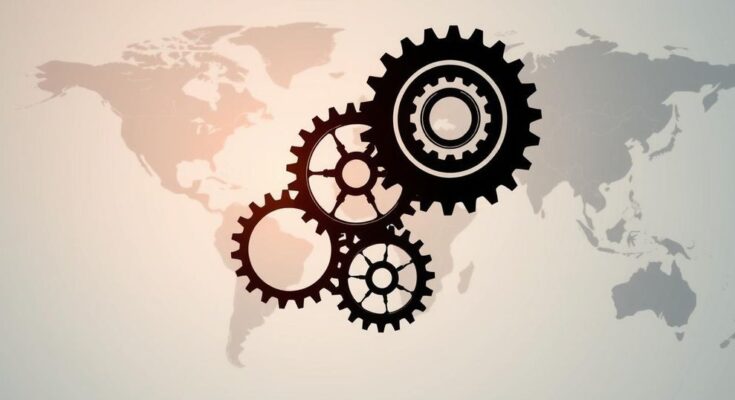India and the EU have commenced discussions to expedite a free trade agreement by year-end, as affirmed by Minister Piyush Goyal and EU Commissioner Maros Sefcovic. With substantial bilateral trade, both parties aim to address tariff challenges posed by U.S. policy, promoting stability and growth within the economic partnership. Upcoming negotiations in March will further advance this initiative, which includes key provisions for trade and investment.
On March 1, 2025, India and the European Union (EU) engaged in discussions to expedite efforts toward concluding a free trade agreement (FTA) by the year-end deadline. Commerce and Industry Minister Piyush Goyal met with EU Commissioner for Trade and Economic Security Maros Sefcovic in Mumbai, accompanied by officials from both parties. Minister Goyal emphasized the commitment to fostering deeper economic ties and creating a mutually beneficial partnership between India and the EU.
Prime Minister Narendra Modi and EU Commission President Ursula von der Leyen recently agreed to finalize the long-anticipated trade deal this year, addressing the rising uncertainties created by U.S. President Donald Trump’s tariff policies. A significant forthcoming event in this ongoing process is the tenth round of negotiations scheduled for March 10-14 in Brussels.
Given the challenges posed by potential increased tariffs from the U.S., strengthening economic relations between India and the EU has become more critical. India is forecasted to be the fastest-growing major economy, with an expected growth rate of 6.4% in 2024-25. Old negotiations that had stalled in 2013 due to market access disagreements resumed in June 2022, marking a renewed effort towards concluding the FTA.
The EU is pressing for substantial duty cuts in various sectors, including automobiles and tax reductions for wines and spirits, as well as a robust intellectual property framework. Conversely, India aims to bolster the competitiveness of its exports—including textiles, pharmaceuticals, and machinery—through reduced tariffs resulting from a successful FTA. Additionally, India is advocating for data security status for its IT sector, which is crucial for securing sensitive information inflows.
In 2023-24, bilateral trade in goods between India and the EU reached $137.41 billion, affirming the EU’s position as India’s largest trading partner. The EU accounts for approximately 17% of India’s total exports, while its exports to India represent 9% of the EU’s own total exports. Furthermore, bilateral trade in services was estimated at $51.45 billion in 2023.
The free trade agreement is designed to enhance bilateral trade and investment flows. The negotiations encompass an FTA, an investment protection agreement, and arrangements regarding geographical indications. EU investments in India are substantial, valued at over $117 billion, while Indian investments in the EU are around $40 billion, demonstrating a robust mutual economic interest.
India and the EU are proactively working towards concluding a free trade agreement by the end of the year, with discussions focusing on mutual economic benefits. The agreement seeks to strengthen ties amidst external tariff pressures and to enhance trade and investment flows, importantly impacting both economies regardless of challenges. This ongoing negotiation is crucial given the significant trade volumes and the strategic interests between the two parties.
Original Source: www.thehindu.com




